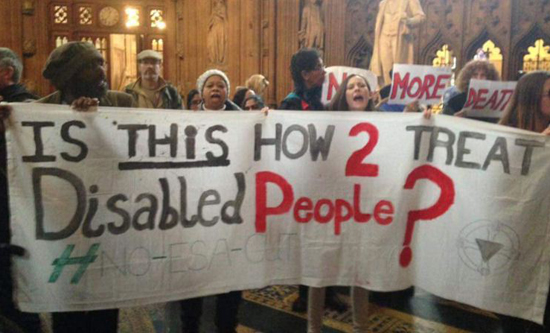
When Phillip Herron took his own life in July of last year, he had less than £5 in his bank account. Herron, a single father of three children, had been waiting weeks for a response to his Universal Credit (UC) application at the time. One of his last acts was to upload a photo of himself crying as he sat in his car and in his suicide note he wrote that he believed his family would be better off without him. He had been quietly battling a large amount of debt and slipped further into arrears as he waited for weeks for his first UC payment.
The Con-Dem coalition government introduced UC in 2013 in a patchy effort to consolidate the application process for government assistance into a solitary payment scheme and it was rolled out in earnest by Conservative governments since 2017. The initiative has been riddled with errors, miscalculations and delays, costing more than £2.5bn of public money. What is less easily calculated is the impact this shoddy and convoluted system has upon the mental health of claimants. A majority of NHS mental health care providers believe UC has been the single biggest factor contributing to a rising mental health crisis in Britain.
A 7 February report from the National Audit Office (NAO) revealed that the Department for Work and Pensions (DWP) had conducted 69 Internal Process Reviews (IPR) since 2015 where a claimant’s suicide and the conduct of the DWP could be related. It has also conceded that this number may not account for all deaths, either by suicide or as a result of other austerity measures, of working-class people who rely on UC as their primary source of income. Despite this, the NAO only started an investigation after former Labour MP Frank Fields wrote to them revealing that the DWP had blocked his requests for data on suicide-related deaths. There is no comprehensive data before 2015 as the NAO admits that ‘the Department has only recently taken a more proactive approach to conducting IPRs into suicides by benefits claimants.’
Amongst the sparse information the DWP does collect is the number of people who have died during the assessment period in which their eligibility for Employment and Support Allowance (ESA) was being decided. Between March 2014 and February 2017, DWP figures reveal that, on average, nine people a day died during their assessment period. More detailed information, and attempts to establish a mortality rate for UC claimants, have repeatedly been repressed by the DWP.
Attack on disabled people
Under UC, disabled people accrue debt in order to maintain the care they need on a daily basis. This is exacerbated during the assessment period wherein they must wait upward of five weeks for an initial payment. People are sanctioned heavily for being unable to attend appointments regardless of the reason. Single parents who work are forced to pay upfront fees for childcare and subsequently left in a financial deficit whilst they claim this money back from the DWP. Those who cannot work are left waiting weeks for an initial payment. While waiting many seek a loan from payday lenders to cover their living costs. This means they incur exorbitant interest on that loan, leaving them mired in debts they can never pay off.
The DWP’s attack on disabled people is not going unchallenged. Court proceedings levelled against the DWP have been initiated by 150 disabled individuals who seek to recover financial losses created by the UC system, which scrapped premiums previously designated for disabled individuals with extensive additional needs and care. Their lawyers Leigh Day will be ‘seeking damages on behalf of its clients for the full amount… claimants lost when they were moved onto UC. For instance, a single person previously in receipt of both… [Enhanced Disability Premium and Severe Disability Premium], who has had to claim UC, will have lost just over £4,000 in the last year alone. This figure increases to nearly £8,000 for a couple.’
UC cannot provide for these people who most need it and instead produces constant financial insecurity. Austerity is not a necessity. It is a manifestation of the ever-expanding chasm between the needs of the working class and the priorities of the capitalist state.
Raimy Skye
Fight Racism! Fight Imperialism! No 275, March/April 2020




